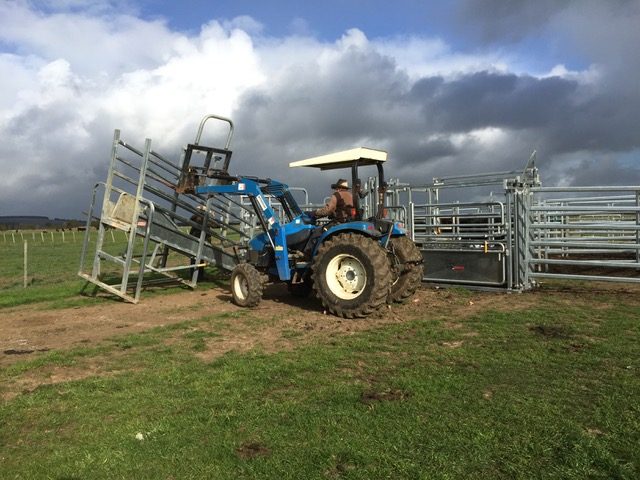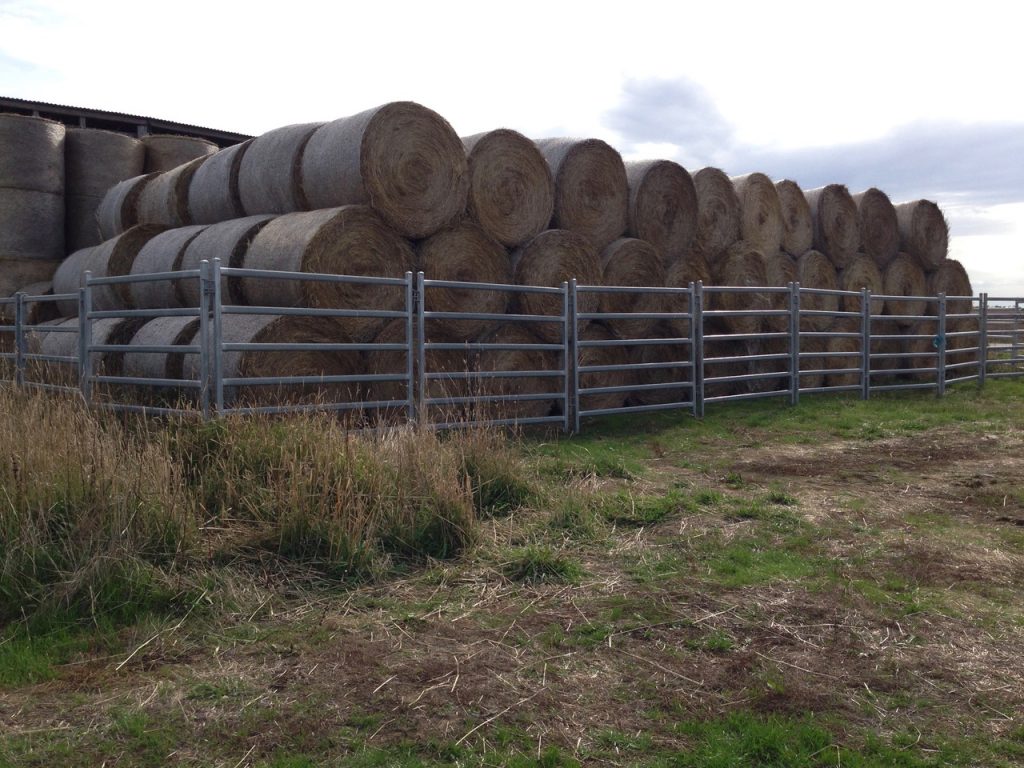LA junior farmer signs for Pro Football Club
Elijah one of our junior cattle kids looks like having a future away from the farm – having just signed for Melbourne City FC
Another beautiful winter sunset
As another day draws to a close we can appreciate the beauty of the Victorian countryside.

Hard day in the yards
The dry conditions are written all over the face – very dusty – everyone praying for some rain relief.

Farm hand Carole
Proves the “paddington bear” rain coat is still worthy even in the worst of conditions.

Here comes the dry!!!
When it stops raining in Victoria its like someone has literally tuned the tap off!!! Here’s to an early break or a lot more hay being fed out to our beautiful girls and boys.

Our new handling yards have arrived
What an exciting day we have today – assembling our new cattle yards. Will make for much less stress for us and more importantly our stock.

A reminder from Winter
It hasn’t quite left us yet – 500 meters above sea level certainly gets chilly even in September

Hay stores for winter
Its been a good growing season – Hopefully we will have enough to get through whats being touted as a harsh winter.

Lauderdale Angus adopts UN global Ag principles
In order to further demonstrate its commitment to the environment and sustainability in agriculture, LA, has adopted the United Nations Global Compact on Food and Agriculture. The six principles are designed to complement existing initiatives that advance sustainability in food and agriculture, and serve as an umbrella over voluntary standards and technical compliance platforms. They provide agreed global language on what constitutes sustainability in food and agriculture on critical issues. This is an important step for LA as it seeks out new markets for its naturally grown grass fed beef here in Australia and in Asia. Raising “green” credentials to the highest possible level is something that prospective customers particular from Asia are requiring and is an important goal.
Principle 1: Aim for Food Security, Health and Nutrition
Businesses should support food and agriculture systems that optimize production and minimize wastage, to provide nutrition and promote health for every person on the planet.
Principle 2: Be Environmentally Responsible
Businesses should support sustainable intensification of food systems to meet global needs by managing agriculture, livestock, fisheries and forestry responsibly. They should protect and enhance the environment and use natural resources efficiently and optimally.
Principle 3: Ensure Economic Viability and Share Value
Businesses should create, deliver and share value across the entire food and agriculture chain from farmers to consumers.
Principle 4: Respect Human Rights, Create Decent Work and Help Communities To Thrive
Businesses should respect the rights of farmers, workers and consumers. They should improve livelihoods, promote and provide equal opportunities, so communities are attractive to live, work and invest in.
Principle 5: Encourage Good Governance and Accountability
Businesses should behave legally and responsibly by respecting land and natural resource rights, avoiding corruption, being transparent about activities and recognizing their impacts.
Principle 6: Promote Access and Transfer of Knowledge, Skills and Technology
Businesses should promote access to information, knowledge and skills for more sustainable food and agricultural systems. They should invest in developing capacities of smallholders and small- and medium-sized enterprises (SMEs), as well as more effective practices and new technologies.




